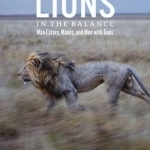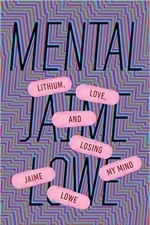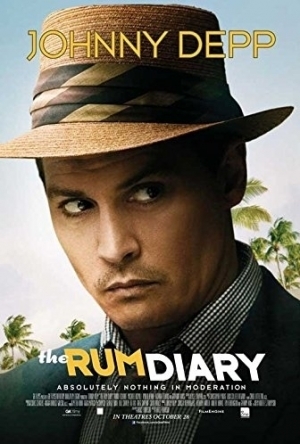
Frame Artist Pro - Photo Collage Editor - Design Scrapbook by Pic Layout and FX Filters For Instagram
Lifestyle and Entertainment
App
Frame Artist helps you create amazing photo arts by combining and decorating your photos in a very...

Lions in the Balance: Man-Eaters,Manes and Men with Guns
Book
From flat-topped acacia trees to great migrations of wildebeest across an edgeless expanse of grass,...

Mental: Lithium, Love, and Losing My Mind
Book
A riveting memoir and a fascinating investigation of the history, uses, and controversies behind...
Mental health biography

Ski School Advanced
Sports and Lifestyle
App
Ski School Advanced combines inspirational, professionally produced video ski lessons with...

Smarter Paris - Offline travel Paris guide to visit Paris - Your local Audioguide Paris
Travel and Lifestyle
App
100% Made in Paris - Offline Paris guide - All-in-one with no compromise on the content - The next...

Baby Pregnancy Tracker
Education and Medical
App
The Baby Pregnancy Tracker enables you to follow the development of your baby through a detailed...

My Study Life - School Planner
Education and Productivity
App
My Study Life is a cross-platform planner for students, teachers and lecturers designed to make your...
Hazel (1853 KP) rated Touching the Rock: An Experience of Blindness (Notes on Blindness Film Tie-in) in Books
May 23, 2017
It is not often a blind man writes a book, and “write” is a word used due to the lack of a better. John M. Hull gradually lost his sight, registering as blind in 1980, a couple of days before the birth of his son. Although anticipating the event, John struggled to come to terms with his new circumstances and adjust to a new way of living. From 1983 through to 1985, John recorded his thoughts on tape, in diary form, as a way to ascertain and understand his predicament. Originally titled Touching the Rock (1990), John’s book has been republished as Notes on Blindness after the release of the film of the same name.
Initially, John made recordings every day, dictating the everyday occurrences he encountered. Amazingly, despite his disability, John was able to continue as a university lecturer and delve deeper into the world of theology. The way John thinks things through as he speaks reflects his academic abilities. Although he may have despaired at the thoughts of not being able to see his children, he had a fairly positive outlook on life.
John’s thought capacity and religious ideology are evident in his assemblage of diary entries. As a blind person, he learns to see the world in an alternative way, and often feels closer to God as a result. Through these new experiences, John begins to see the light despite the darkness.
The metaphorical descriptions of blindness help the reader to understand the horror and difficulties not being able to see visually provokes. This is heightened by John’s recordings of the bad dreams he often suffers, in which he is able to see. His fixations on these dreams are assumedly a fascination with visual imagery, which he does not have access to in his waking life.
It is hard not feel sorry for John as he reports the conversations he has with his young children. The effort to communicate and play with them is far greater than a seeing parent. Remarkably, as John begins to adjust to his new lifestyle, his children take the situation in their stride.
Notes on Blindness is also an educational narrative for those without sight problems. John explains the things other people, in attempts to be helpful, do that result in making things far more confusing for John as he tries to navigate his way from one place to another. Despite what most think, blind people are fairly good at walking routes they are familiar with, and, with the help of a stick, can safely travel through new areas. Once people start shouting instructions, it is difficult to pay attention to the location and listen to everyone else at the same time.
John’s voice is extremely articulate, and his thoughts profound, which may suggest heavy editing when compiling the recordings into written form. However, as he is an academician, his eloquence of speech does not feel forced or faked.
Notes on Blindness remains the same as the original publication but with the added inclusion of an introduction by Cathy Rentzenbrink, and an epilogue by his wife Marilyn, written in 2016, a year after his death. These, the latter in particular, provide an insight into how John’s blindness affected those around him and emphasises what a truly remarkable man he was.
Of the many memoirs available on bookshelves today, Notes on Blindness is a truly unique publication. It is not telling a story, or recounting a well-lived life, but gives great insight into the world of the blind. As John’s thoughts were not originally recorded with intention of being available to everyone, they are all the more personal and honest, provoking emotion and providing the reader with a new way of seeing. It is a book that will stay with you for a very long time.
Hazel (1853 KP) rated Notes on Blindness: A Journey Through The Dark in Books
Dec 17, 2018
It is not often a blind man writes a book, and “write” is a word used due to the lack of a better. John M. Hull gradually lost his sight, registering as blind in 1980, a couple of days before the birth of his son. Although anticipating the event, John struggled to come to terms with his new circumstances and adjust to a new way of living. From 1983 through to 1985, John recorded his thoughts on tape, in diary form, as a way to ascertain and understand his predicament. Originally titled <I>Touching the Rock</I> (1990), John’s book has been republished as <I>Notes on Blindness</i> after the release of the film of the same name.
Initially, John made recordings every day, dictating the everyday occurrences he encountered. Amazingly, despite his disability, John was able to continue as a university lecturer and delve deeper into the world of theology. The way John thinks things through as he speaks reflects his academic abilities. Although he may have despaired at the thoughts of not being able to see his children, he had a fairly positive outlook on life.
John’s thought capacity and religious ideology are evident in his assemblage of diary entries. As a blind person, he learns to see the world in an alternative way, and often feels closer to God as a result. Through these new experiences, John begins to see the light despite the darkness.
The metaphorical descriptions of blindness help the reader to understand the horror and difficulties not being able to see visually provokes. This is heightened by John’s recordings of the bad dreams he often suffers, in which he is able to see. His fixations on these dreams are assumedly a fascination with visual imagery, which he does not have access to in his waking life.
It is hard not feel sorry for John as he reports the conversations he has with his young children. The effort to communicate and play with them is far greater than a seeing parent. Remarkably, as John begins to adjust to his new lifestyle, his children take the situation in their stride.
<i>Notes on Blindness</i> is also an educational narrative for those without sight problems. John explains the things other people, in attempts to be helpful, do that result in making things far more confusing for John as he tries to navigate his way from one place to another. Despite what most think, blind people are fairly good at walking routes they are familiar with, and, with the help of a stick, can safely travel through new areas. Once people start shouting instructions, it is difficult to pay attention to the location and listen to everyone else at the same time.
John’s voice is extremely articulate, and his thoughts profound, which may suggest heavy editing when compiling the recordings into written form. However, as he is an academician, his eloquence of speech does not feel forced or faked.
<i>Notes on Blindness</i> remains the same as the original publication but with the added inclusion of an introduction by Cathy Rentzenbrink, and an epilogue by his wife Marilyn, written in 2016, a year after his death. These, the latter in particular, provide an insight into how John’s blindness affected those around him and emphasises what a truly remarkable man he was.
Of the many memoirs available on bookshelves today,<i> Notes on Blindness</i> is a truly unique publication. It is not telling a story, or recounting a well-lived life, but gives great insight into the world of the blind. As John’s thoughts were not originally recorded with intention of being available to everyone, they are all the more personal and honest, provoking emotion and providing the reader with a new way of seeing. It is a book that will stay with you for a very long time.
Gareth von Kallenbach (980 KP) rated The Rum Diary (2011) in Movies
Aug 7, 2019
The Rum Diary follows Paul Kemp (played by Johnny Depp), a failed novelist turn journalist, who finds himself at a critical turning point in his life. Having written two and a half novels that were never published, he was having trouble finding his voice, in that he needed to find a way to “write like him” as Paul put it himself. So he decides to do some freelance writing for a small publication located in San Juan, Puerto Rico in 1960.
The movie opens with Kemp waking up in a hotel, and you can immediately, and clearly, see that he partakes in certain pleasures of life. After reporting to work at San Juan Star, Kemp meets Sala (played by Michael Rispoli), the photographer for the Star who quickly becomes his cohort. The editor-in-chief of the San Juan Star, Lotterman (played by Richard Jenkins) indicates to Kemp that the publication is only a few months away from being closed down, and that there really isn’t much to look forward to. He assigns Kemp to do some fluff pieces and the horoscope section of the paper.
Kemp is not content with this as he is looking at this experience as a way to put his career back on track. Over the next few days, during his adventures with Sala, he comes across a few different story ideas that are immediately shot down by Lotterman, as they emphasize the things that are wrong with San Juan, and Lotterman feels that the focus should be on the good things (like bowling alleys).
During one of his nights of boozing, he meets Chenault (played by Amber Heard). She’s aloof, mysterious, and of course… Kemp falls immediately in love with her. She just happens to be the girlfriend of Sanderson (played by Aaron Eckhart). Sanderson immediately recognizes the talents that Kemp has and begins recruiting him for a real estate scam. The idea is to get a foothold and build a new hotel on a private island that is used for United States military testing, but will soon be relinquished from that purpose. Sanderson and a group of investors want Kemp to put a brilliant positive spin on the hotel investment so that the public opinion, and that of those in a position to block the development, is a positive one.
Things begin to unravel as Kemp and Sala’s shenanigans keep getting them into trouble, culminating in a heated night where Kemp, Sala, Chenault and Sanderson end up at a bar during the St. Thomas Carnival.
The Rum Diary was highly entertaining with a great supporting cast. Giovani Ribisi provides an excellent distraction from some of the more serious events of the movie as he appears every now and then as Moburg, another reporter for the San Juan Star. The movie played like a great alcohol-induced, drug-fueled adventures of a journalist in the 1960s. Definitely some quirky moments, and you will find yourself laughing at many of Kemp and Sala’s exploits.
My only gripe with the movie is how it ended. The build up to Kemp printing the story and putting it out there leaves you wanting more. While I don’t think the film will reach the same cult-status that Fear and Loathing in Las Vegas will, it is definitely entertaining (all the way until the end). It is a good nod to Thompson and fans of his books and movie adaptations are sure to enjoy.


